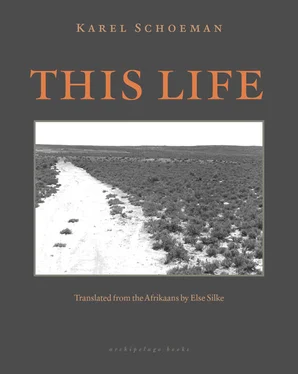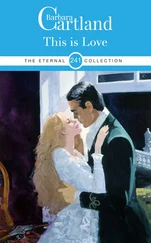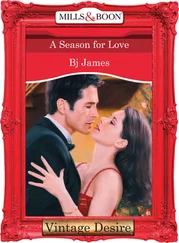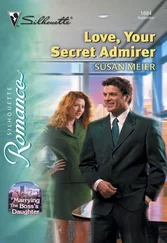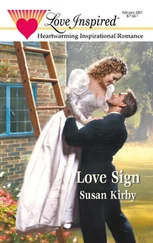Karel Schoeman - This Life
Здесь есть возможность читать онлайн «Karel Schoeman - This Life» весь текст электронной книги совершенно бесплатно (целиком полную версию без сокращений). В некоторых случаях можно слушать аудио, скачать через торрент в формате fb2 и присутствует краткое содержание. Год выпуска: 2015, ISBN: 2015, Издательство: Archipelago, Жанр: Современная проза, на английском языке. Описание произведения, (предисловие) а так же отзывы посетителей доступны на портале библиотеки ЛибКат.
- Название:This Life
- Автор:
- Издательство:Archipelago
- Жанр:
- Год:2015
- ISBN:978-0-914671-16-9
- Рейтинг книги:5 / 5. Голосов: 1
-
Избранное:Добавить в избранное
- Отзывы:
-
Ваша оценка:
- 100
- 1
- 2
- 3
- 4
- 5
This Life: краткое содержание, описание и аннотация
Предлагаем к чтению аннотацию, описание, краткое содержание или предисловие (зависит от того, что написал сам автор книги «This Life»). Если вы не нашли необходимую информацию о книге — напишите в комментариях, мы постараемся отыскать её.
considers both the past and future of the Afrikaner people through four generations of one family. In an elegiac narrator's tone, there is also a sense of compulsion in the narrator's attempts to understand the past and achieve reconciliation in the present. This Life is a powerful story partly of suffering and partly of reflection.
This Life — читать онлайн бесплатно полную книгу (весь текст) целиком
Ниже представлен текст книги, разбитый по страницам. Система сохранения места последней прочитанной страницы, позволяет с удобством читать онлайн бесплатно книгу «This Life», без необходимости каждый раз заново искать на чём Вы остановились. Поставьте закладку, и сможете в любой момент перейти на страницу, на которой закончили чтение.
Интервал:
Закладка:
Meester stayed with us long enough to teach me to read and write, that I know for sure, for I remember how, later, we had written each other notes that we hid in a hollow between two stones in the wall encircling the graveyard; Meester tore blank pages out of his books and tore these into narrow strips which we then rolled, and on the back of each other’s notes or between the lines we wrote our replies. It was a game, nothing more, a token of affection or trust, and what we wrote to each other was unimportant. How few were the people who ever showed even just a liking for me, not to mention love; as few as I ever loved myself. Father, Meester, Pieter, Sofie and later Maans — were these all? Yes, there was no one else and, except for Maans, they are all long dead.
Meester left us when Pieter was confirmed: he went down to Worcester with us for Nagmaal, as usual, and then he was suddenly gone. He had probably been dismissed, or possibly he realised his services would no longer be required, and to the others his disappearance was so unremarkable that they found it unnecessary to give me an explanation or even to mention it; but I had expected from him at least a word of farewell, and for days I searched for him among the Nagmaal-goers in the village and among the assembled faces in the streets and in church, but in vain. So, when we returned home I went straight to the graveyard to search for a message from him in the hollow between the stones and, groping into the narrow opening among the stones, my fingers found something, a piece of paper torn from a book, wrapped around the little cross he had left for me as a parting gift because he had known he would not be returning to the farm. I put it back between the stones, for I realised it was a secret nobody else should know about, and later I found a remnant of cloth somewhere to fold around it and a piece of sheepskin to wrap it up more securely, and so I treasured it for years without understanding the nature of the gift I had received.
2

That was when Jakob got married and Sofie came to us. Meester had left, and Pieter had been confirmed and had to pull his weight on the farm, so that he no longer had as much time for me; by then I was older and had more and more responsibilities around the house, where I spent most of my time with the two women, Mother and Dulsie. And then Sofie came; and I still remember how she stepped into our silent circle as we stood outside the house to welcome her and how, suddenly, she knelt down before me to hug me, and exclaimed, “Now you’re my little sister!” She could not have been very much older than me, despite being a married woman: her date of birth is inscribed in the Bible along with the date of her death, and one might look it up, but if the one were a lie, the other might just as well be false, so it makes no sense to take the trouble. Seventeen or eighteen I would guess now, or perhaps even younger, for girls married young in those days, and how glad she must have been to discover in that small, secluded world and in that silent circle a child in whose company she could still be a child herself.
How can I say what Sofie was like in those years; how can I even say how she appeared to me or how beautiful she was to my childish eyes, how do I know where to begin? Sofie’s face in the glow of the candlelight, yes, indeed, let me start there, for when I mention her name or think of her, that is the image rising relentlessly before my eyes in the dark, Sofie bending over the candle, her long, dark hair like a veil across her face, like a shade before the light, and then the darkness blotting out all as if it had never existed. No, not that, not that, that was not what I had wanted to remember, it was something else. Sofie with the candle in her hand, Sofie raising the candlestick slightly above her head, floating through the dark, Sofie as I saw her for the very first time; let me start there.
Every winter we, like everyone from the Roggeveld, moved down to our outspan in the Karoo with the sheep and all our household effects. Usually early winter had already set in here on the escarpment, and sometimes the first sparse snowflakes were already whirling over the ridges as we toiled down Vloksberg Pass with the loaded wagon, driving the sheep ahead of us, and from the faded grey world of renosterbos and harpuisbos, slowly we toiled down the steep slopes of the mountainside, bouncing and jolting over the rocky ledges, to the mild air and herbaceous scents of the Karoo, to the veld where the geelbos glowed in the sun and thorn tree and karee provided shade against the heat of the day. On that particular day I am thinking of, it happened once again, as often did, that something broke along the way and had to be fixed, and so we reached the far end of the kloof with the sun already setting, still a long way from our destination; yet, with that peculiar stubbornness that sometimes took hold of Father, he decided that we should push on, even if it meant we would arrive only at midnight, and, as usual when that happened, Mother did not protest. Thus we were still on the road at dusk, and so I climbed into the wagon and, leaning against Dulsie, fell asleep, only vaguely conscious of the jolting motion of the wagon over the uneven ground and the scent of crushed vegetation under the wheels. I woke up to the sound of dogs barking, and Father shouting at the oxen to halt, and, still half asleep, I knelt and looked back from under the tented hood, vaguely aware of people and voices and the trampling of horses in the dark; and somewhere I saw a light, a flickering light bobbing through the dark, and a woman’s face appeared for a moment in the distance beyond the darkness as she raised the candle in her hand, before vanishing once more in the dark among the bewildering noise of voices and horses’ hoofs, while I remained kneeling there, dazed and awestruck, and in the end I probably fell asleep again. The oval of her face and the symmetry of her eyebrows and her dark eyes, visible for just a moment; but stamped into my memory forever.
We had got lost in the dark and arrived on the farm where Sofie’s people were camping that winter, on the near side of the kloof from our own outspan, and we must have spent the night there and taken the long way around the mountain to our own land the next morning, that was all that had happened. But that way, as I had seen her there with the candle in her hand, Jakob must also have seen her that evening, and Pieter must have seen her in the darkness for the first time, for the two of them had been on horseback, driving the sheep, and it must have been they who had been circling the wagon, invisible in the dark. Thus they, too, had seen her face as I had: did they also remember it till the end like me, did Jakob see it before him when he slipped and fell, his face against the rock; did Pieter carry it with him through the silence?
That is all I remember of that winter that distinguished it from other Karoo winters of my youth. As far as I know, we had never met Sofie’s people before, for her father was a wealthy man who owned several farms in the Karoo and the Bokkeveld, and it was the first time they had camped there for the winter, but they were practically our next-door neighbours, just around the mountain from us. Could it be that Jakob had ridden over to the neighbours? I suppose so, for it was only an hour on horseback by way of the shortcut through the kloof, and in winter people used to call on each other and entertain all the time: why would he not have called on her? Oom Wessel might have been a respected man, but likewise we were well-to-do people in the Roggeveld, and Jakob was the eldest son and heir and an attractive young man to boot, handsome with his dark eyes, despite being a bit surly and temperamental. On his gleaming black horse through the kloof in the moonlight to call on Sofie, the mild air sweet with the scent of shrubs — is this something I am imagining now, or could it be a distant recollection somewhere from the depths of my memory? It must also have been that very winter that he decided to marry her, or perhaps it was decided for him that this rich man’s daughter would be a suitable bride, for, as with everything that happened in our home, that, too, would have been considered and discussed, albeit not openly, and Jakob would not have acted without Mother’s approval, that much I do know. Was that how it happened? I am merely guessing now; more than half of what I know is speculation and assumption, and from stepping stone to stepping stone I traverse the past, uncertain of every footstep. Much different, however, it could not have been. “You’re the one who wanted it like that,” Father said to Mother without raising his eyes, and his voice was flat, but his hands were trembling as he picked up the Bible, and that was the only time I ever heard him reproach her and she grew suddenly pale and turned aside and made no reply. So, it must have been like that.
Читать дальшеИнтервал:
Закладка:
Похожие книги на «This Life»
Представляем Вашему вниманию похожие книги на «This Life» списком для выбора. Мы отобрали схожую по названию и смыслу литературу в надежде предоставить читателям больше вариантов отыскать новые, интересные, ещё непрочитанные произведения.
Обсуждение, отзывы о книге «This Life» и просто собственные мнения читателей. Оставьте ваши комментарии, напишите, что Вы думаете о произведении, его смысле или главных героях. Укажите что конкретно понравилось, а что нет, и почему Вы так считаете.
